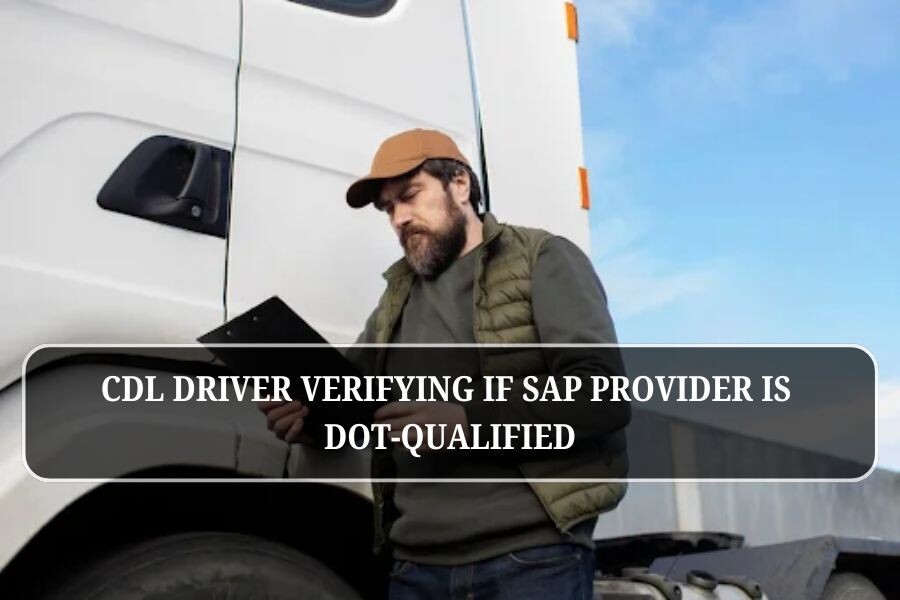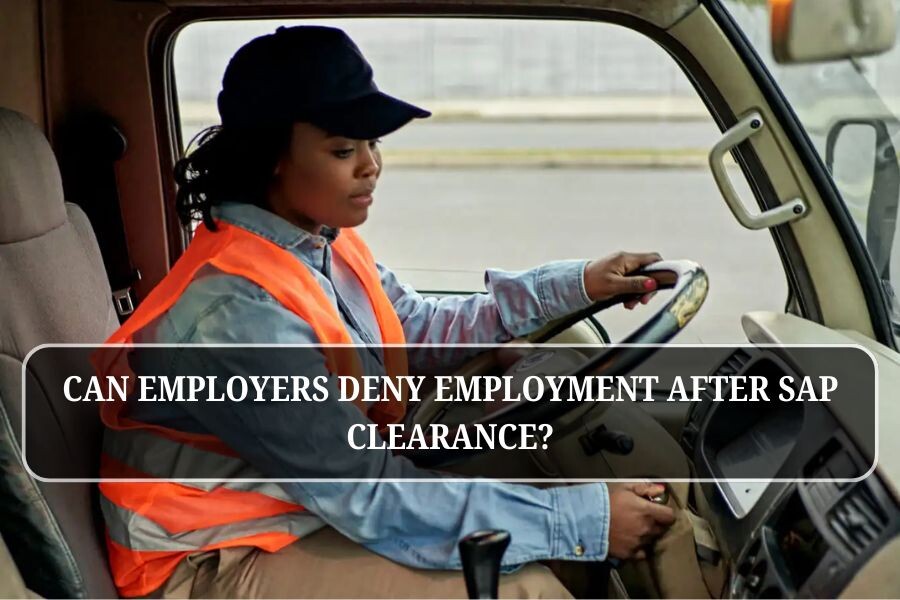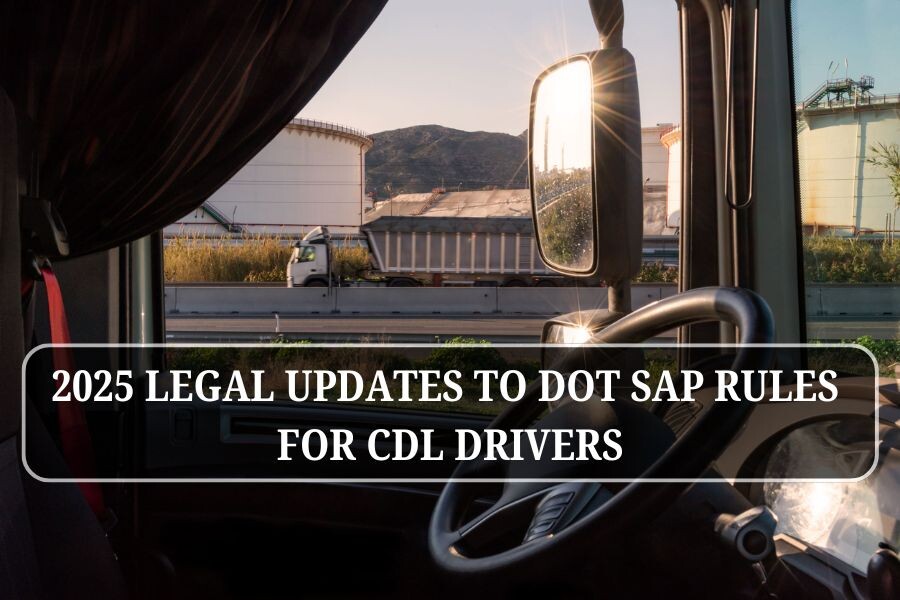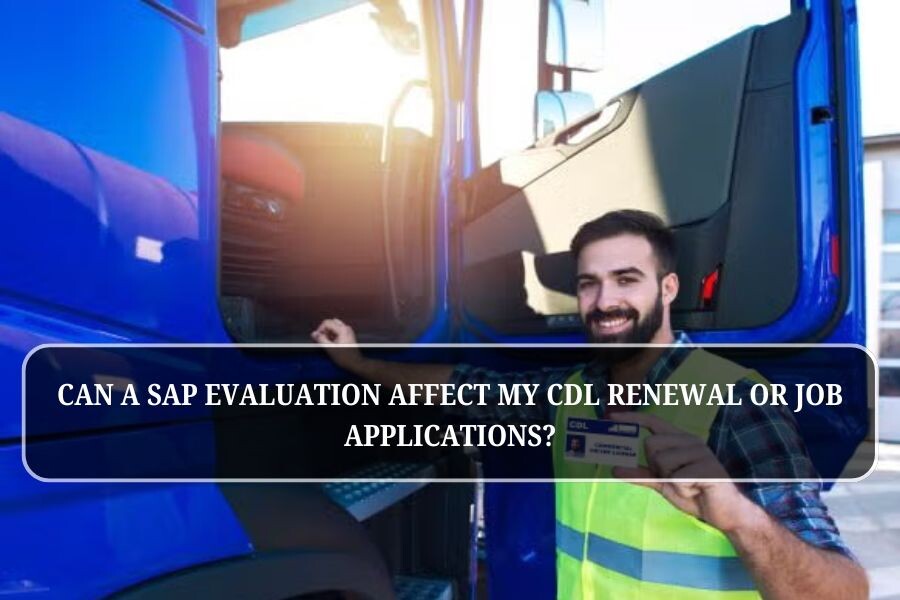Introduction
If you’ve failed or refused a DOT drug or alcohol test, the DOT SAP Program is the only approved way to get back to work as a CDL driver. The Department of Transportation (DOT) requires all safety-sensitive employees to complete the Substance Abuse Professional (SAP) process before resuming duty. At AACS Counseling, we provide nationwide SAP evaluations and Return-to-Duty (RTD) guidance to help drivers across all 50 states get back on the road safely and legally.
In this guide, we’ll break down everything you need to know about the DOT SAP Program in 2025, including the evaluation process, program duration, costs, compliance rules, and how to choose the right SAP provider.
What Is the DOT SAP Program?
The DOT SAP Program is a federally mandated process for CDL drivers and other safety-sensitive employees who test positive for drugs or alcohol. It ensures drivers receive an evaluation, treatment (if recommended), and follow-up testing before returning to safety-sensitive work.
The program is not optional—skipping it can result in permanent disqualification from driving under DOT regulations.
Key Points:
- Required by 49 CFR Part 40 (DOT Regulations)
- Applies to all CDL drivers regulated by FMCSA
- Involves evaluation, treatment/education, Return-to-Duty test, and follow-ups
Step-by-Step DOT SAP Program Process
1. Initial SAP Evaluation
You meet with a DOT-qualified Substance Abuse Professional (SAP). This telehealth or in-person evaluation determines the level of education or treatment you need.
2. Treatment or Education
Depending on your evaluation, you may be referred to education courses or a treatment program. Length varies based on individual needs.
3. Follow-Up Evaluation
After completing recommendations, you return to your SAP for a follow-up evaluation. The SAP verifies compliance.
4. Return-to-Duty (RTD) Test
You must pass a DOT RTD drug and/or alcohol test with a negative result before returning to work.
5. Follow-Up Testing Plan
The SAP provides your employer with a testing plan (minimum 6 unannounced tests in 12 months, up to 5 years).
How Long Does the DOT SAP Program Take in 2025?
The timeline depends on your compliance and treatment plan:
- Education only: 1–3 weeks
- Short-term treatment: 30–60 days
- Longer treatment programs: 3–6 months
At AACS Counseling, we offer virtual SAP evaluations to help drivers complete steps faster without travel delays.
How Much Does the DOT SAP Program Cost?
Costs vary, but typically include:
- Initial SAP Evaluation: $400–$600
- Education/Treatment Programs: $150–$2,500 (depending on program)
- Follow-Up Evaluation: $150–$300
- RTD Test: $50–$100
👉 At AACS Counseling, we provide affordable SAP evaluations starting at $300 with nationwide coverage.
DOT SAP Program in All 50 States
One advantage of choosing AACS Counseling is that we provide nationwide SAP services. Whether you’re in Texas, Georgia, California, or New York, our licensed providers are available via telehealth or in-person.
Examples of local searches we serve:
- DOT SAP Program in Atlanta, GA
- DOT SAP Evaluation in Dallas, TX
- Return-to-Duty SAP Provider in Chicago, IL
- DOT SAP Near Me in Los Angeles, CA
Why Choose AACS Counseling for the DOT SAP Program?
- Nationwide Coverage: Serving CDL drivers in all 50 states
- Telehealth Options: Save time with virtual evaluations
- Experienced SAP Providers: Licensed and DOT-qualified professionals
- Affordable Pricing: Starting at $300 per evaluation
- Compliance Focused: We strictly follow DOT & FMCSA regulations
Frequently Asked Questions (FAQs)
1. Can I drive during the SAP program?
No. You cannot perform any safety-sensitive duties until you complete the SAP process and pass the RTD test.
2. Can I change my SAP provider once I’ve started?
Yes, but you must ensure the new SAP is DOT-qualified, and all records are properly transferred.
3. Is the SAP Program accepted by FMCSA if done via telehealth?
Yes. As of 2025, telehealth SAP evaluations are fully accepted by the DOT and FMCSA.
4. What happens if I skip the SAP program?
Skipping the program means you will remain disqualified from driving under DOT rules.
5. Do employers check the Clearinghouse for SAP status?
Yes. Your SAP and RTD results are recorded in the FMCSA Clearinghouse, which employers must check before hiring.
SAP Evaluation Services | Return-to-Duty Process
FMCSA Clearinghouse | DOT Rule 49 CFR Part 40
Conclusion
The DOT SAP Program is the only path for CDL drivers to return to work legally after a DOT violation. At AACS Counseling, we make the process simple, affordable, and nationwide with telehealth options. Whether you’re in a major city or a rural area, our SAP providers are ready to help you complete the evaluation and Return-to-Duty process.
📞 Call us today or book your DOT SAP evaluation online to get back on the road safely and in compliance.









